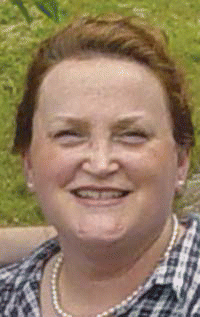Mr. Brown, who moved often with the Air Force, and therefore has worked with almost 100 otolaryngologists, also recommended that physicians be especially careful to elicit the appropriate and pertinent information when interviewing prospective PA candidates. What are the criteria for which hiring otolaryngologists should be on the lookout? “They need to look for somebody who knows their limits and somebody they can trust.” Trust between a physician and PA means they are able to care for each patient mutually or alone, augmenting each other’s strengths. “It’s not a competition,” he said. “You need a mutual agreement to take care of these patients as effectively and efficiently as you possibly can.” He also thought the physician and PA should have a good match of personalities. In other words, “if you want a very aggressive practice, both PA and physicians have to want that. If you want a more laid-back practice, those personalities have to match.” Sharing a commitment to the organization’s mission is also important.
Explore This Issue
March 2007Marie Gilbert, PA-C, former president of the Society of Physician Assistants in Otolaryngology and Head & Neck Surgery (SPAO–HNS), who practices with otolaryngologists Joseph White, MD, and Christopher Knox, MD, in Dover, N.H., has worked as a PA in otolaryngology for 27 years and helps otolaryngologists find PAs for their practices. She also teaches a course at AAO–HNS annual meetings on the scope of practice and utilization of PAs. She would advise otolaryngologists who are hiring PAs to be exact about what they are looking for in a PA. Of the PAs she has known in otolaryngology practice, “the only time they left is when the practice did not know what to do with the PA, or didn’t have set ideas about what the PA would be allowed or asked to do.”
What would make a PA want to stay in the specialty? “ENT is such a broad specialty that you really don’t get bored with it,” said Ms. Gilbert. “[One might] think that it’s one small area of the body, that there can’t be all that much to know about it; but that couldn’t be farther from the truth. Most people I know who got into otolaryngology enjoy the specialty, enjoy the range of patients we see, and [get to see a wide variety] of illnesses, so most PAs who get into ENT, stay.”
From a legal standpoint, the physician who serves as supervisor of PAs (or other health providers) is also responsible for their practices, even though PAs often have their own malpractice policies. “Some practices don’t pay for an individual policy and only have the PA or nurse practitioner added to the group policy,” said Ms. Gilbert. In terms of reimbursement, PAs are credentialed providers with Medicare and Medicaid and are reimbursed at 85% of the supervising physician’s contracted charges. Details will depend on the state and insurance regulations.

Leave a Reply